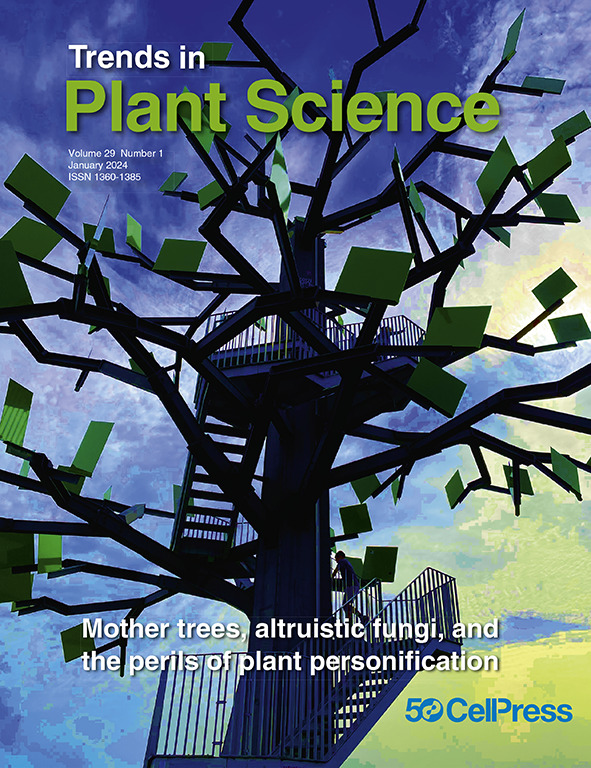利用草食诱导的植物挥发物来调节微生物群:精准农业的前景和挑战。
IF 17.3
1区 生物学
Q1 PLANT SCIENCES
引用次数: 0
摘要
最近,Hu等人通过多物种实验证明,草食诱导的植物挥发物(HIPVs)通过茉莉酸依赖的植物-土壤反馈(PSF)丰富有益的根际细菌,显著促进玉米等作物的生长和抗虫性。这一机制为突破可持续生产的瓶颈提供了一个跨规模的解决方案。本文章由计算机程序翻译,如有差异,请以英文原文为准。
Harnessing herbivory-induced plant volatiles to regulate microbiomes: prospects and challenges for precision agriculture.
Recently, Hu et al. demonstrated through multispecies experiments that herbivory-induced plant volatiles (HIPVs) enrich beneficial rhizosphere bacteria via jasmonate-dependent plant-soil feedback (PSF), significantly enhancing the growth and insect resistance of crops such as maize. This mechanism provides a cross-scale solution to crack the bottlenecks of sustainable production.
求助全文
通过发布文献求助,成功后即可免费获取论文全文。
去求助
来源期刊

Trends in Plant Science
生物-植物科学
CiteScore
31.30
自引率
2.00%
发文量
196
审稿时长
6-12 weeks
期刊介绍:
Trends in Plant Science is the primary monthly review journal in plant science, encompassing a wide range from molecular biology to ecology. It offers concise and accessible reviews and opinions on fundamental plant science topics, providing quick insights into current thinking and developments in plant biology. Geared towards researchers, students, and teachers, the articles are authoritative, authored by both established leaders in the field and emerging talents.
 求助内容:
求助内容: 应助结果提醒方式:
应助结果提醒方式:


